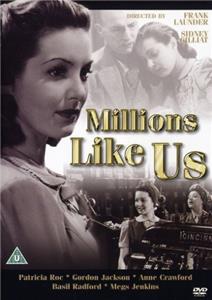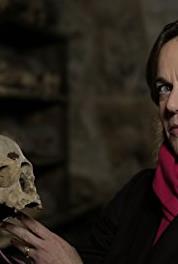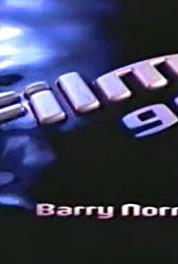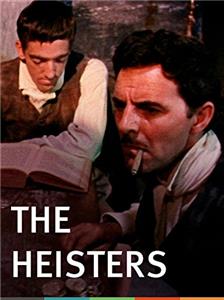Millions Like Us (1943) Online

Categorised as a British World War II propaganda film this less known example is a superb work of morale-boosting films from mid World War 2. Well written and directed the film has a simple story line based around the many women conscripted into industrial factory work in support of the home front war effort. It has a cast of many great actresses and actors recognisable to fans of films from this era. With much of the film appearing to be digitally restored this process adds an amazing timeless quality to the faces, fashion, modest hair and make-up styling, which is delightful in itself making the characters appear almost contemporary.
| Cast overview, first billed only: | |||
| Patricia Roc | - | Celia | |
| Gordon Jackson | - | Fred | |
| Anne Crawford | - | Jennifer | |
| Moore Marriott | - | Jim | |
| Basil Radford | - | Charters | |
| Naunton Wayne | - | Caldicott | |
| Joy Shelton | - | Phyllis | |
| John Boxer | - | Tom | |
| Valentine Dunn | - | Elsie | |
| Megs Jenkins | - | Gwen | |
| Terry Randall | - | Annie | |
| Amy Veness | - | Mrs. Blythe | |
| John Salew | - | The Doctor | |
| Beatrice Varley | - | Miss Wells | |
| Bertha Willmott | - | The Singer |
The fourth cinematic appearance of Charters and Caldicott, played by Basil Radford and Naunton Wayne. They previously appeared in The Lady Vanishes (1938) and Night Train to Munich (1940), films also written by Sidney Gilliat and co-director Frank Launder. They also appeared in Crook's Tour (1940), which was adapted from a BBC Radio serial. Although this was their final appearance as Charters and Caldicott, Radford and Wayne appeared together as similar comic characters in other films, such as Passport to Pimlico (1949).
Grandpa Jim comments that his daughter Phyllis has progressed from dating "local lads" to "the United Nations". Interestingly, although the international organization with that name did not exist until two years after the film's release, the term "United Nations' was used to describe the allied forces arrayed against the Axis Powers. FDR used the term frequently.
The film was passed for US release by the Production Code Administration on condition the word 'hell' be deleted throughout, but apparently this situation was never satisfactorily resolved and the film was never theatrically released in the USA.
Rather strangely there is a specific reference to the small, and relatively unknown, south Leicestershire town of Market Harborough. The hometown of Celia's 'first' apparent romantic encounter, a dull, odd-looking young man, poorly dressed and perhaps a little slow (Jonathan Field - uncredited). It appears to be a running gag and the apparent hostility is essentially a mystery, although the town may have been a through-point or stop-off for commuting northern crew/cast via train. It has been suggested that it was a general dig at the rural East Midlands, rumored to have had a higher than average percentage of men unfit to fight, known for its odd-stock. On the other hand it may have been to satisfy the easily pleased audiences at hearing a familiar name to mock or otherwise.
The first film of Brenda Bruce.
First film of Joy Shelton.
This film received its unheralded USA premiere when it was initially telecast in Los Angeles Monday 10 July 1950 on KECA (Channel 7); New York television viewers saw it for the first time Sunday 14 January 1951 on the DuMont Television Network's International Playhouse on WABD (Channel 5).
The performers at the review quote from stanza vi of Thomas Gray's "Ode on a Distant Prospect of Eton College" (written 1742): "Alas, regardless of their doom, / The little victims play! / No sense have they of ills to come, / Nor care beyond to-day."




User reviews